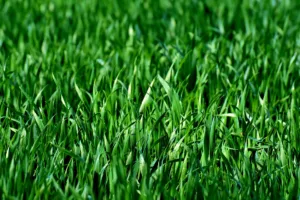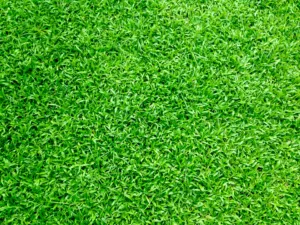Is Your Grass Sending an SOS? Here’s What You’ll See
A healthy lawn in Florida requires the right balance of sunlight, hydration, nutrients, and professional care. But when soil becomes compacted, it silently chokes your grass roots, leading to disappointing results despite your efforts.
Some lawn issues are easy to spot, while others creep up unnoticed.
Here are seven subtle clues that your turf is in trouble and needs aeration. Plus, what happens if you don’t take action right away. All from your favorite lawn care service provider in Tampa and Sarasota, FL!

1. Water Puddles Instead of Absorbing
Do you notice water pooling on your lawn’s surface before trickling away? This runoff isn’t just inefficient. It’s a clear and obvious sign of serious soil compaction.
Years of foot traffic, lawn equipment, and natural settling can press down on soil so tightly that moisture can’t penetrate. Eventually, this creates an almost solid barrier, trapping grass roots in just the top inch or two of soil where water evaporates quickly.
What if you do nothing?
- Higher water bills from ineffective irrigation
- Grass drying out despite regular watering
- Brown, dead patches where water never reaches
- Soil erosion on sloped areas
How liquid aeration fixes it:
Specialized solutions create tiny pathways in compacted soil, allowing water to seep deeper. This leads to better hydration and stronger, drought-resistant roots.
2. Your Lawn Feels Bouncy Underfoot
If your grass has an unusually springy feel, you might have a thatch issue. Thatch is a matted layer of dead organic material between the soil and living grass blades.
While a thin thatch layer is beneficial, excessive buildup repels water and nutrients, forcing roots to grow upward instead of downward.
What if you ignore it?
- Grass becomes vulnerable to drought
- Increased risk of pests and disease
- Fertilizers sit on the surface, unused
- Weak, shallow root systems
Liquid aeration’s role:
It introduces beneficial microbes that break down thatch, improving soil structure and stability.

3. Fertilizer Seems Ineffective
Are you applying fertilizer but seeing lackluster results? Compacted soil can “lock away” nutrients, preventing grass from accessing them.
What happens without intervention?
- Wasted money on unused fertilizers
- Grass suffers from nutrient deficiencies
- Weeds gain a competitive edge
- Gradual thinning of your lawn
Why aeration works:
Liquid aeration loosens compacted soil, releasing trapped nutrients and allowing new fertilizers to reach root zones effectively.
4. Grass Won’t Thicken Up
If your lawn stays patchy despite seeding and care, compaction could be stunting growth. New grass struggles to establish roots in dense Florida soil, while mature plants produce fewer tillers (the shoots that fill in bare spots).
Consequences of neglect:
- Constant reseeding with poor results
- Bare patches inviting weeds
- More soil erosion
Liquid aeration’s benefit:
By softening the topsoil, you’ll encourage deeper root growth and natural thickening, reducing the need for constant overseeding.
5. Lawn Wilts at the First Sign of Heat
Does your grass turn brown faster than your neighbors’ during dry spells? Shallow roots trapped in compacted soil can’t access deeper moisture reserves, leaving your Florida lawn vulnerable to drought stress.
Risks of ignoring it:
- Frequent watering becomes necessary
- Grass stays brown while others thrive
- Increased heat-related disease risk
- Slower recovery in cooler weather
The fix:
Aeration helps roots grow deeper, where soil retains moisture longer, reducing water needs and improving heat tolerance.
6. Weeds & Moss Are Spreading
An invasion of Florida crabgrass or moss signals that your soil conditions favor weeds over healthy grass. Many weeds thrive in compacted soil, outcompeting turf for limited resources.
What happens if you wait?
- Rising weed control costs
- Weaker grass over time
- Weed infestations worsening
How aeration helps:
Improving soil conditions gives grass the upper hand against weeds, while better drainage discourages moss growth.
7. It’s Been Over a Year Since Last Aeration
Even if your lawn looks fine, soil compaction develops gradually. Without annual aeration, hidden damage accumulates.
Long-term effects of skipping it:
- Gradual lawn decline
- Thatch buildup worsens
- More disease and pest issues
- Eventually requires costly renovation
Why annual liquid aeration matters:
It maintains ideal soil structure, prevents severe compaction, and avoids expensive lawn repairs later.
Don’t Wait Until It’s Too Late
Your lawn can bounce back, but compaction is a stealthy threat. Addressing these seven signs early with liquid aeration keeps your grass resilient.
Stay ahead of the problem! Proactive care is the key to a lush, thriving lawn. Contact the lawn care experts at Plant It Earth today to schedule liquid aeration and give your grass the strong foundation it needs.
We proudly provide lawn care services in Sarasota and lawn care services in Tampa.
